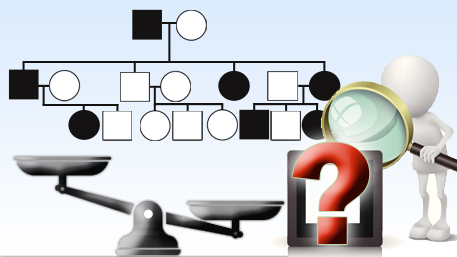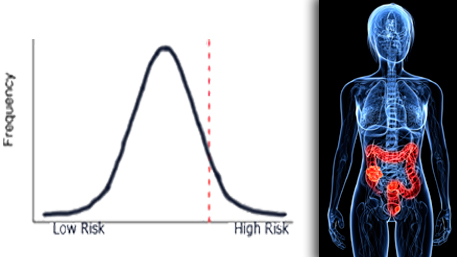Search Results
10 results for precision public health
The Limits of Risk Prediction: Remembering Cecile Janssens

“The number of possible ‘causal’ [gene-environment] interactions is so enormous that every patient’s disease likely has its own complex and unique cause. This uniqueness limits predictive ability: it is impossible to accurately predict something that has never occurred before.” Cecile Janssens, DNA tells great stories—about the past, not future, WIRED, December 5, 2013 Risk prediction
Posted on by 5 CommentsFrom Polygenic Risk Scores to Methylation Risk Scores: What are the Clinical Applications?

A recent study used methylation risk scores to improve predictive value of baseline models for a range of clinical diagnoses and laboratory tests. The ability to understand and predict a person’s risk of disease is an integral component of precision medicine and precision public health. Many factors, including environmental and genetic, contribute to a person’s
Posted on byUsing Pharmacogenomics to Better Understand the Role of Selected Medications and Birth Defect Risk

Through a funding opportunity from CDC’s Office of Genomics and Precision Public Health in collaboration with the Office of Advanced Molecular Detection, CDC’s Birth Defects Monitoring and Research Branch in the National Center on Birth Defects and Developmental Disabilities will conduct a 2-year project to gather genome-wide genotyping data to look at relationships between pharmacogenomic
Posted on byDanielle Rasooly
Danielle Rasooly, PhD is a biostatistician for the CDC’s Office of Genomics and Precision Public Health. Dr. Rasooly’s specialty is in applying methods in machine learning and causal inference to large-scale medical and genetic data to understand genetic determinants of disease and to inform clinical decision-making. Her current area of interest lies at the intersection
From Guthrie to Genomes: Expanding Bioinformatic Capabilities in Newborn Screening Programs

Through a funding opportunity from CDC’s Office of Genomics and Precision Public Health in collaboration with the Office of Advanced Molecular Detection, CDC’s Newborn Screening and Molecular Biology Branch will conduct a two-year project to develop a streamlined national newborn screening (NBS) bioinformatics pipeline to help in expanding the use and utility of gene and
Posted on byUsing Pharmacogenetics to Enhance Tuberculosis (TB) Treatment

Through a funding opportunity from CDC’s Office of Genomics and Precision Public Health in collaboration with the CDC Office of Advanced Molecular Detection, CDC’s Division of Tuberculosis Elimination will conduct a 2-year project to assess relationships between pharmacogenetics (PG), TB drug exposure, relevant treatment outcomes, and safety. Researchers will use information collected in an international phase
Posted on byEquitable Implementation of Cascade Testing for Genetic Disorders: Where are We?

Testing relatives of individuals with genetic disorders, a process known as cascade testing or cascade screening, is critical for identifying those needing health services that can prevent morbidity and mortality. Yet, cascade testing is poorly implemented in clinical practice. For example, there are several genetic conditions with CDC tier 1 evidence-based recommendations for cascade testing,
Posted on byThe Long Road to Population-based Genomic Screening

Since 2012, the CDC Office of Genomics and Precision Public Health (OGPPH) has identified three autosomal dominant conditions for which there exist evidence-based recommendations to prevent morbidity and mortality from either cancer or heart disease. Using our evidence-based framework, we have collectively labeled the following conditions as tier 1 genomic applications: 1) hereditary breast and
Posted on by 3 CommentsShould polygenic risk scores be used in risk-stratified colorectal cancer screening?

Polygenic risk scores (PRS) summarize information about a person’s disease risk based on numerous DNA variants in their genome. Each variant confers very little increase in disease risk. But composite (or polygenic) risk scores made up of a number of such variants have been shown to stratify people to normal distributions of disease risks for
Posted on byDavid Dotson
David Dotson, PhD, MS, is a health scientist at the Office of Genomics and Precision Public Health (OGPPH), Centers for Disease Control and Prevention (CDC) in Atlanta. He has done post-doctoral work in academic and industrial biotechnology settings, specializing in the analysis of gene expression. He has also worked in the pharmaceutical industry as a senior medical writer.